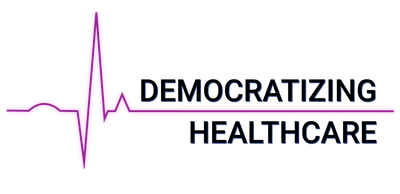About
Founded by entrepreneur Andrew Lacy and nuclear medicine radiologist-biomedical engineer Dr Raj Attariwala.
Andrew Lacy and Raj Attariwala founded Prenuvo together as a way of detecting medical problems early when they are most successfully treated. They intentionally make it possible and easy for people to take control of their own health and become the CEO of their own healthcare. Prenuvo uses a pioneering MRI-based approach that combines hardware, software, innovative calibration and machine learning to capture over 2,000 images for a full body view of the patient. Other imaging techniques like CT and PET scans expose people to radiation, but MRIs don’t harm the body and actually provide more detailed images. In fact, there are no known side effects to MRIs, making them perfect for preventive medicine. Prenuvo provides people with comprehensive knowledge about what is going on in their whole body, system by system, organ by organ, covering over 500 conditions from cancer to spinal health, reproductive health, and the endocrine, urinary, digestive, respiratory, nervous, and circulatory systems – just to name some of what Prenuvo scans and interprets.
Catching Cancer Early
Researchers at Penn State published a study where they estimated in 2018, the U.S. spent $156B on cancer care alone. Andrew and Raj imagine a world where people are scanned with an MRI to catch cancer at the earliest stages, when it is considerably less expensive to treat and even curable. Everyone in healthcare recognizes that MRIs are the pinnacle of imaging and are the only type of imaging that can measure many different tissue weights and screen for tissue hardness. Most cancers are harder than the surrounding tissue, so the combination of these sequences makes it easier to discriminate between benign lesions, for example cysts or hemangiomas that many of us have, and a potential malignancy.

Non-Symptomatic Cancer
One thing many people worry about is non-symptomatic cancer. Healthcare only routinely tests for a few cancers – cervical with a pap smear, breast with a mammogram, colon with a colonoscopy, prostate, and less frequently CT scans for people with a high risk for developing lung cancer. That leaves many cancers that aren’t screened or detected until they are at a more advanced stage. Getting a full body MRI every couple of years means someone’s images can be compared year over year and small changes can be detected and assessed. A whole-body MRI scan done every couple of years can provide the data needed for the dream scenario in healthcare: The Longitudinal Patient Record. An individual, comprehensive patient record that illustrates a full body and health assessment and highlights tiny changes before they can advance to something more serious. Usually, multiple sources of medical data need to be pulled together to start to see a whole-health picture, from imaging individual body parts, to labs, to vital signs and symptoms. Prenuvo is that easy to understand whole-health picture that is vastly superior to one that is put together piecemeal from many different sources and machines without standardization.

MD, PhD
Aneurysms
Cancer is only one thing people worry about. About 0.8% of people have a brain aneurysm, but they typically don’t discover the aneurysm until it ruptures, which can be fatal. According to the Brain Aneurysm Foundation, 6.5M Americans have a brain aneurysm, and 50% of those that rupture result in death. For those who survive a rupture, 66% have permanent neurological problems. While CT scans can see brain aneurysms before they rupture, they require a special injection and expose the patient to radiation, so they aren’t used as a preventive scan on someone without symptoms or risk factors. An MRI can detect brain aneurysms long before they burst or leak, potentially causing brain damage or even death. It’s the safe, easy way for those 6.5M Americans to uncover an aneurysm long before it proves fatal.



